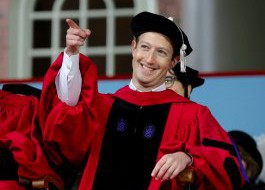 Edward EverettWikimedia Commons
Edward EverettWikimedia Commons
On November 19, 1863, famed orator and former Secretary of State Edward Everett delivered a two-hour speech at the Gettysburg National Cemetery — but most people only remember the two-minute speech given by President Abraham Lincoln.
Arguably, Everett's words that day deserve just as much attention and praise as Lincoln's. His speech backhanded the Confederacy and directly addressed the horrific and hypocritical nature of slavery in a free country.
The day's organizers had named Everett the main attraction — no one even knew for sure if Lincoln would attend the dedication.
Everett, also a former senator and president of Harvard, had every reason to believe he'd steal the show. He wrote a two-hour speech, full of beautiful language and logic, that explained the significance and the tragedy of the Battle of Gettysburg, the standoff during the Civil War with the most causalities, often thought of as a turning point. And he delivered all of it from memory, according to the History Channel.
"It is in reality a war originally levied by ambitious men in the cotton-growing States, for the purpose of drawing the slaveholding Border States into the vortex of the conspiracy, " Everett said about the start of the Civil War.
Indeed, Everett related this battle for freedom to the one the Greeks fought millenia ago:
"And shall I, fellow-citizens, who, after an interval oftwenty-three centuries, a youthful pilgrim from the worldunknown to ancient Greece, have wandered over that illustriousplain, ready to put off the shoes from off my feet, as one thatstands on holy ground,–who have gazed with respectful emotionon the mound which still protects the dust of those who rolledback the tide of Persian invasion, and rescued the land ofpopular liberty, of letters, and of arts, from the ruthlessfoe,–stand unmoved over the graves of our dear brethren, who solately, on three of those all-important days which decide anation’s history,–days on whose issue it depended whether thisaugust republican Union, founded by some of the wiseststatesmen that ever lived, cemented with the blood of some ofthe purest patriots that ever died, should perish orendure,–rolled back the tide of an invasion, not lessunprovoked, not less ruthless, than that which came to plantthe dark banner of Asiatic despotism and slavery on the freesoil of Greece? Heaven forbid!"
The speech goes on to describe the three-day battle fought at Gettysburg and the immeasurable losses suffered by both victor and vanquished. Everett makes clear, however, that the blame laid with the Confederacy:
"And now, friends, fellow-citizens, as we stand among thesehonored graves, the momentous question presents itself, Whichof the two parties to the war is responsible for all thissuffering, for this dreadful sacrifice of life,–the lawful andconstituted government of the United States, or the ambitiousmen who have rebelled against it? I say “rebelled” againstit ..."
The two-hour-long speech concludes with another glorification of the Union victory: "... wheresoever throughout the civilized world the accounts of this great warfare are read, and down to the latest period of recorded time, in the glorious annals of our common country there will be no brighter page than that which relates the battles of Gettysburg."
Everett's epic speech was followed by a 273 words speech from Lincoln, lasting less than two minutes. While the president never mentioned slavery and did not directly criticize the South, his words had a far more lasting impression.
Here's Lincoln's Gettysburg Address:
"Four score and seven years ago our fathers brought forth onthis continent, a new nation, conceived in Liberty, anddedicated to the proposition that all men are created equal.
Now we are engaged in a great civil war, testing whether thatnation, or any nation so conceived and so dedicated, can longendure. We are met on a great battle-field of that war. We havecome to dedicate a portion of that field, as a final restingplace for those who here gave their lives that that nationmight live. It is altogether fitting and proper that we shoulddo this.
But, in a larger sense, we can not dedicate — we can notconsecrate — we can not hallow — this ground. The brave men,living and dead, who struggled here, have consecrated it, farabove our poor power to add or detract. The world will littlenote, nor long remember what we say here, but it can neverforget what they did here. It is for us the living, rather, tobe dedicated here to the unfinished work which they who foughthere have thus far so nobly advanced. It is rather for us to behere dedicated to the great task remaining before us — thatfrom these honored dead we take increased devotion to thatcause for which they gave the last full measure of devotion —that we here highly resolve that these dead shall not have diedin vain — that this nation, under God, shall have a new birthof freedom — and that government of the people, by the people,for the people, shall not perish from the earth."
Even Everett wrote a letter to Lincoln the next day, asserting, "I should be glad, if I could flatter myself that I came as near to the central idea of the occasion, in two hours, as you did in two minutes."
A version of this post was originally written by Christina Sterbenz.




